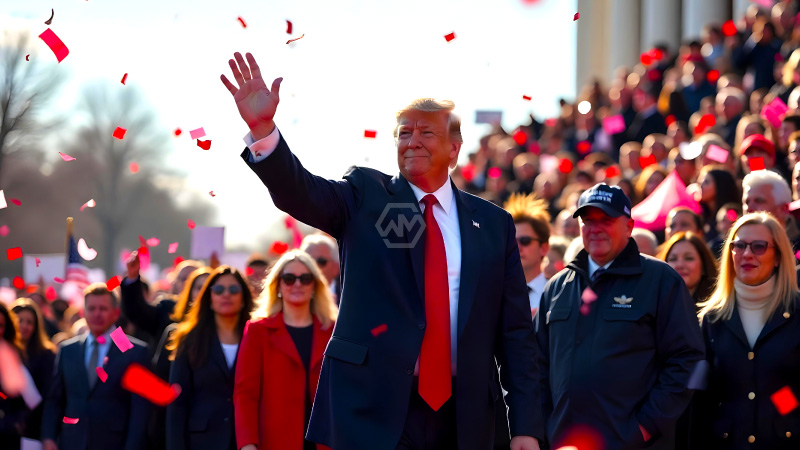- Key populist leaders like Milei, Bukele, and Meloni align with Trump’s nationalist agenda.
- Strategic allies, including China and the UK, highlight evolving U.S. diplomacy.
- The event reflects growing global polarization between populism and traditional alliances.
Donald Trump’s second inauguration as the 47th U.S. President marks a pivotal moment in international relations. The guest list includes prominent populist leaders such as Argentina’s Javier Milei and Italy’s Giorgia Meloni, emphasizing Trump’s alignment with nationalist movements worldwide.
Alongside populist allies, representatives from key global powers like the UK and Japan underline the enduring significance of traditional alliances. These partnerships remain vital as the U.S. navigates tensions in the Indo-Pacific and Europe.
Populism and Diplomacy Collide at Trump’s Inauguration
The presence of populist leaders like Viktor Orbán and Nayib Bukele at Trump’s inauguration highlights the global resonance of nationalist policies. These leaders, known for their tough stances on immigration and crime, share ideological commonalities with Trump’s “America First” philosophy. Their attendance underscores the rise of a populist network influencing global governance.
Argentina’s Javier Milei represents Latin America’s growing alignment with Trump’s administration. His libertarian economic policies and aversion to leftist ideologies mirror Trump’s domestic agenda. This partnership could strengthen bilateral trade and investment ties, particularly in energy and agriculture.
China’s decision to send senior representatives, despite ongoing tensions, signals its strategic intent to maintain dialogue with the U.S. This nuanced participation reflects the delicate balance in U.S.-China relations, where trade, security, and Taiwan remain contentious issues. The move underscores both nations’ recognition of the importance of diplomatic channels.
Traditional allies like the UK and Japan provide a stabilizing counterpoint to the populist focus of the event. Their involvement reinforces the significance of enduring partnerships, particularly in addressing shared challenges like global security and economic stability. Trump’s inauguration serves as a reflection of both change and continuity in U.S. foreign relations.
Trump’s 2025 inauguration represents a crossroads in global diplomacy, where populist movements and traditional alliances converge. It sets the stage for a complex and transformative era in international relations.
“In politics, nothing happens by accident. If it happens, you can bet it was planned that way.” – Franklin D. Roosevelt



